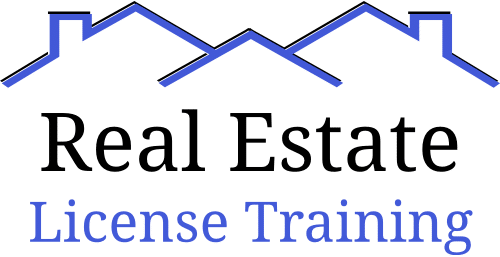There are so many real estate career paths…
And if you’ve decided to be a home inspector, then we have good news for you.
For one, home inspectors get paid handsomely.
Plus, it’s very fulfilling to inspect homes and help home buyers make informed decisions.
The other good news is that we’re going to show you how to become a home inspector. We’ll list all the requirements and steps.
Moreover, we’ll also tell you a bit more about what home inspectors do, the pros and cons of being one, and much more.
So let’s jump right to it!
What Does a Home Inspector Do?
You’re probably thinking it – a home inspector inspects homes.
It’s that self-explanatory.
But what do they actually look at?
When do home inspectors play a significant part in the purchase or building of homes?
Who do home inspectors work for?
A home inspector is someone who does a visual examination of the physical and major interior structures of residential units – whether those are houses, apartments, or buildings.
More than that, they review parts of the homes such as roofing, walls and ceilings, the attic and the basement, the foundation, the heating and air conditioning systems, and the electric and water systems, to name a few.
Basically, they check if a home is habitable.
From there, they estimate repair or housing costs and hand in the report of what they found.
Now, home inspectors come into play before the creation and/or signing of a purchase contract.
As for employment, they are usually hired by home buyers or sellers.
How to Become a Home Inspector – The 7 Steps
Here are the 7 steps you need to complete to become a home inspector:
- Check your state’s licensing requirements
- Complete the required coursework
- Fulfill home inspector trainee requirements
- Pass the National Home Inspector Exam (NHIE)
- Get the necessary insurance
- Complete your state’s licensing application
- Start your home inspection career
Let’s get to the details…
Step #1: Check Your State’s Licensing Requirements
Every state will have a different set of requirements.
So it’s best to research that.
You can find all the state-by-state home inspector requirements here.
But generally, here is what the licensing boards will require from you:
- At least a high school diploma or equivalent GED
- Complete coursework ranging from 60 to 140 hours
- Become a home inspector trainee and complete a minimum number of inspections
- Pass the National Home Inspector Exam (NHIE)
- Have a valid insurance certificate
Here’s where it gets confusing.
Some states don’t regulate home inspector licenses — this includes California and Colorado.
In these states, you simply need to consider the Standards of Practice and Code of Ethics.
Step #2: Complete The Required Coursework
As we saw above, the education requirements will differ per state.
Some states only ask you to complete 60 hours, such as Illinois and Mississippi.
Other states require 140 hours, such as New York.
Most states require anywhere between 60 to 140 hours.
Another thing.
The type of coursework will differ — so always make sure what programs you need to take and what topics to study.
Usually, though, these are the topics that you have to cover:
- Home types
- Home systems and infrastructure
- Home construction
- Code of Ethics and Standards of Practice
- Marketing for home inspectors
- Risk management
Again, check the specifics of your state.
Step #3: Fulfill Home Inspector Trainee Requirements
Besides education, some states require you to first become a trainee before you can sit for the licensing exam.
This gives you a more hands-on type of learning.
As a trainee, you have to fulfill a minimum number of inspections —- get this — under the supervision of a licensed inspector.
So let’s say your state requires a minimum of 75 inspections.
Once that number is complete, you can take the licensing exam.
We keep on saying it, but we’ll say it again — CHECK THE SPECIFICS OF YOUR STATE.
Step #4: Pass the National Home Inspector Exam (NHIE)
In some states, you don’t need to pass a licensing exam — you can go straight to applying for a home inspector license.
Most of the time, however, you’ll have to take and pass the National Home Inspector Exam (NHIE)
You may also have to take and pass a state-level exam.
Now, the NHIE is conducted by either PSI/AMP or Pearson Vue.
Click here for a complete list of states that use PSI and those that use Pearson Vue.
What can you expect from the National Home Inspector Exam (NHIE)?
It is a 200-question, multiple-choice test that can be taken in 4 hours.
To pass, you need to score at least 500 points (since the score points go from 200 to 800).
As for the exam fee, it can cost anywhere between $200 to $300.
Step #5: Get the Necessary Insurance
Before you apply, you may have to submit proof of Errors and Omissions (E&O) and general liability insurance.
Since your job involves giving advice and recommendations, you need to protect yourself from accusations of damaging items from the property or whatnot.
If you are already employed by a company, they may be the ones to provide the necessary insurance for you.
If so, no need to worry about that.
Step #6: Complete Your State’s Licensing Application
When you pass the exam, you can now submit your home inspection application to your state’s regulator.
And you already know it —- the application process will differ per state.
Let’s give you an example.
In Texas, you’ll have to mail in an Application for Apprentice Inspector License, pay the $60 fee, have your fingerprints taken, and pass a background check.
For New York, you’ll have to show proof of education, experience, exam passing score, pass a background check, and pay the fee of $250.
This is just to show you how different the application requirements are — and how important it is to research what YOUR state requires.
Step #7: Start Your Home Inspection Career
Phew!
You’ve come a long way.
But now that you have your home inspector license, you can start your new career.
There are 3 career tracks you can choose from:
- Work for an established local firm
- Own a home inspection start-up
- Buy a home inspection franchise
Of course, it’s best to start with the lowest and (if you want) advance your career later on.
Work for an Established Local Firm
This is the most common route chosen by new home inspectors. By joining a company, you get access to their current clientele, strategies, and processes prepared. If you want to learn the ropes further and not shell out money upon starting, we suggest you take this path.
Own a Home Inspection Start-Up
If you want more control and flexibility on how to run every business aspect, your schedule, your rates, and your clientele — this is for you. Many choose to do this because the earnings don’t have any limit — but you’ll need good startup management.
Buy a Home Inspection Franchise
Say you want more freedom but don’t want to start from scratch. You can purchase a home inspection franchise. Of course, this means shelling out lots of money — and making sure the business runs smoothly.
Pros and Cons of Being a Home Inspector
Like with any career, there are different advantages and disadvantages that come with it.
Here are reasons why you should consider becoming a home inspector and some realistic expectations of the job.
| Pros | Cons |
| Flexible Time | Earnings May Vary |
| Be Your Own Boss | Industry Policies and Education Change from Time to Time |
| Valuable Service |
Pros:
- Flexible Time. One of the best pros to this career is having flexible working hours. It’s up to you when you schedule your home inspections, as long as you work within the discussed timeframe. For this reason, many home inspectors are able to have this as a second job.
- Be Your Own Boss. If you choose to run a startup or buy a franchise, then you have the authority and the freedom to manage your business. The exciting part comes with establishing your own brand and reputation, getting and growing a clientele, setting your own rules, and dictating the vision for your company.
- Valuable Service. As home inspectors, you are part of an important process and accomplishment for future homeowners. You know that your contributions can help with someone else’s big purchase.
Cons:
- Earnings May Vary. This mostly applies to startup and franchise owners. You need to consistently work hard and network well to make sure clients are coming in regularly.
- Industry Policies and Education Change from Time to Time. Yes, policies and information can change from time to time depending on the state you’re in. So you always need to be in touch with your associations and community to get the latest information and insights. It’s no wonder some states require you to complete continuing education every time you renew your license.
Frequently Asked Questions
Is the National Home Inspector Exam Hard?
The average pass rate is only 55% — so it’s best to prepare well for the NHIE!
Take your pre-licensing education requirements seriously. Make sure you take notes as you work as a home inspector trainee.
You might also want to consider enrolling in an exam prep program or choose the programs with practice exams for higher chances of passing.
How Much Do Home Inspectors Earn?
Home inspectors employed in companies or firms earn anywhere from $42,000 to $67,000. Annual salaries depend on the location, the company pay grade, and your performance.
For those who own their franchise and start-up, your earnings will depend on the volume and portfolio of your clientele.
What Skills are Necessary for Home Inspectors?
Given the daily activities and accountabilities of a home inspector, here are some traits and skills you should possess:
- Attention to detail
- Foresight
- Strong understanding of home structures and setups
- Good communication and negotiation skills
Conclusion
And that is how to become a home inspector.
As we keep on repeating — the requirements are different for every state.
So you should always research, research, research.
But in this article, we outlined the basic steps that you’ll need to get your home inspector license.
So best of luck!

